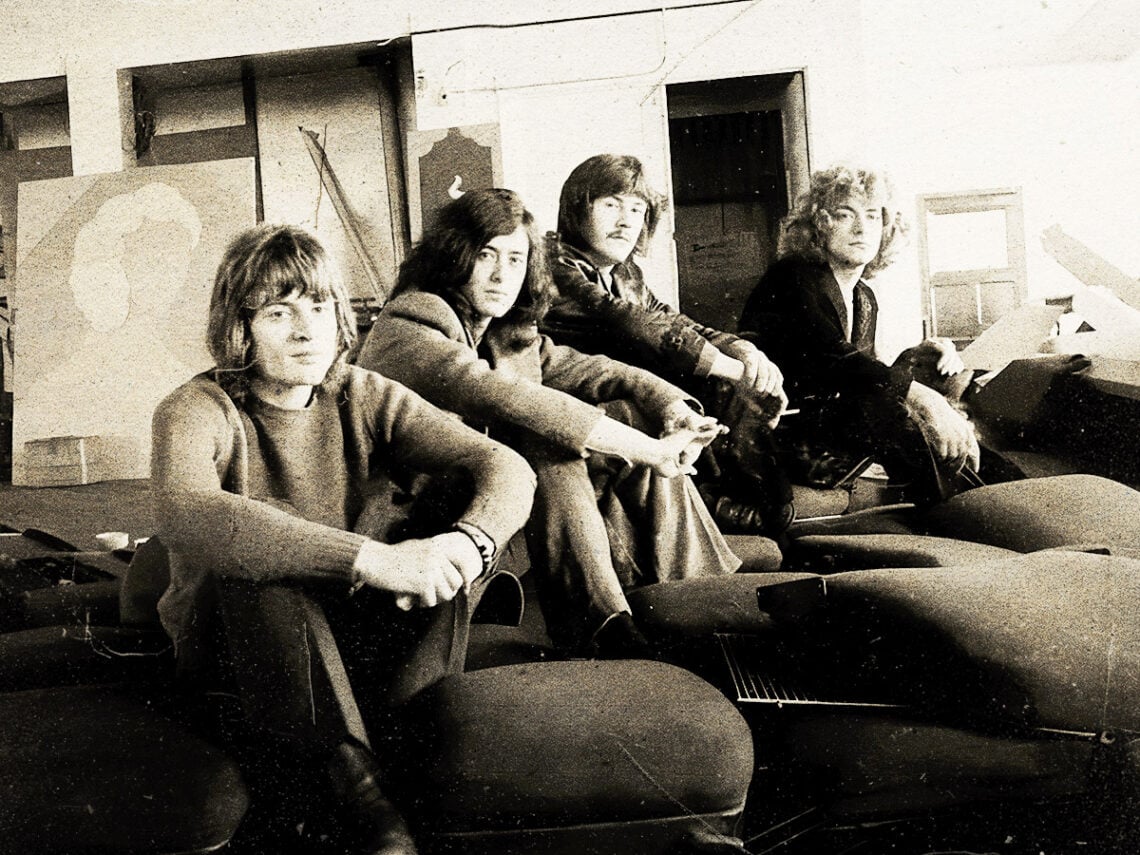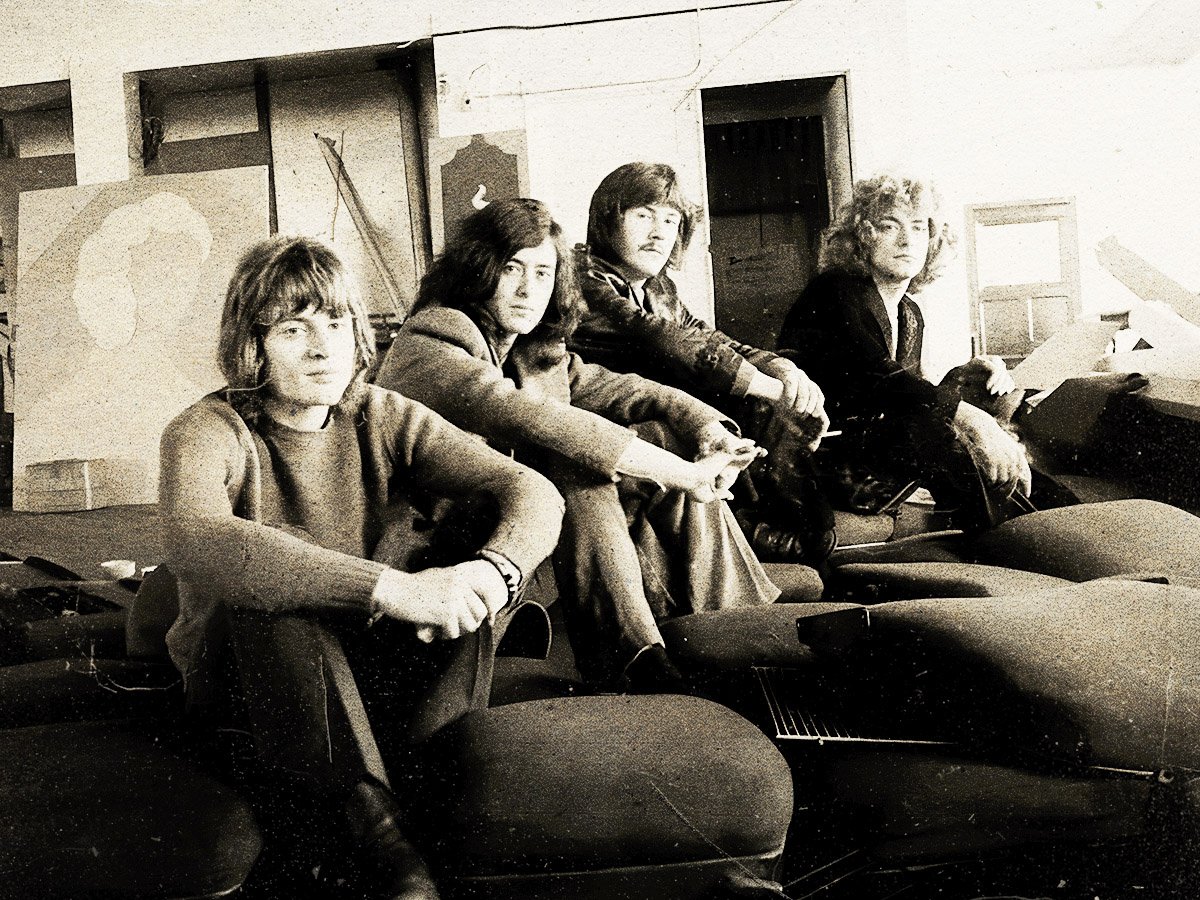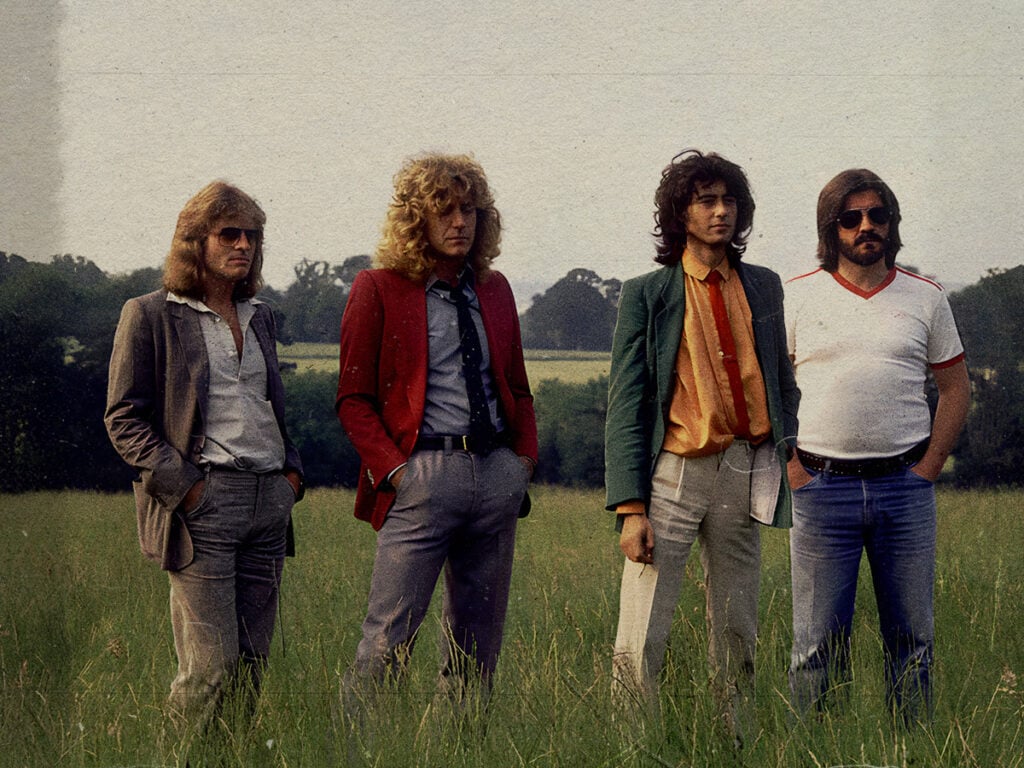
(Credits: Far Out / Alamy)
Mon 18 August 2025 14:00, UK
Led Zeppelin were once proven to be among the greatest bands in history in the most comical of ways.
A radio station ran a survey on thousands of fans, asking for votes on the greatest, drummer, bassist, guitarist and singer of all time in a bid to create the finest fantasy group in history. However, the ‘fantasy’ element was somewhat removed when the results rolled in and found that Led Zeppelin were the mythical Fab Four all along, with each member triumphing in their respective categories.
Yet, by the same token, the band have never been accused of perfection, either. Eddie Van Halen has labelled Jimmy Page “sloppy”, Keith Richards has slated Robert Plant as “too acrobatic” and rubbished John Bonham as “uncontrolled”, and Gene Simmons claimed that John Paul Jones was a little “muffled”.
While a few ardent fans would no doubt fall into a frenzy of rage upon reading that litany of slander, the band would take it on the chin. Perfection was never their aim. Was Robert Johnson ever perfect or was he searching for the roots that cling to the mire of where our creativity comes from? That’s all the group wanted to emulate.
Sure, they certainly strived for a technical advancement to rock ‘n’ roll, using their profound proficiency to bring an element of classical music to the blues. But an advancement of that magnitude is never marred by inaccuracy. In fact, it is somewhat embellished by it.
The stand-out moments in the recent documentary, Becoming Led Zeppelin, are born from the band simply jamming together. In those moments, the script is being written in real time. They’re not reciting anything known and, therefore, subject to a sense of precision. Rather, it is an exercise in power, demonstrating the conjoined creative inclinations of the band in full swing. It proves as potent as moonshine and just as intoxicating.
Their goal was similar when it came to recording. For their debut album, they endeavoured to bring that moonshine magic to fruition with an opus that stated their intent over the blues. ‘I Can’t Quit You Baby’ approaches the genre like a waltz, like a symphony. It has movements and depth, taking the roots of an old Willie Dixon song and rendering it a progressive ensemble piece.
The song is awash with tricky barre chords, two whole-tone shifts, walking basslines, howls, and plenty of nuance. But it doesn’t bother itself with any notion of being note-perfect. In some ways, that would defy the point.
As Page would go on to explain, “There are mistakes in it, but it doesn’t make any difference. I’ll always leave the mistakes in. I can’t help it. The timing bits on the A and Bb parts are right, though it might sound wrong,” he told Guitar Player.
Adding, “The timing just sounds off. But there are some wrong notes. You’ve got to be reasonably honest about it.” Alas, all of these blemishes are overridden by the sense of band blustering forth in full swing, reinventing the blues in the process.
In the years that followed, they might have tightened and progressed even further, but the leaps they went onto merely differed in degrees of difficulty from this initial departure. ‘I Can’t Quit You Baby’ was the moment rock ‘n’ roll arrived at a new precipice, and it takes a band in complete harmony to arrive at such a juncture. It’s hard to say whether there’s been an advancement quite like it ever since.
Its magic is defined by the self-same magic of the band at their best: they’re all firing in unison, a coalescence of soloing that signals a supremacy of creative cohesion tighter than Robert Plant’s rubber pants. Hence the survey that proclaimed them the masters: that’s not an individual feat, but a zenith of being in a ‘band’ of brilliance.
The parts were magnificent, but ‘I Can’t Quit You Baby’ was the first exclamation that they were more than the sum of that. It’s a portrait of a band on fire.
Related Topics
The Far Out Led Zeppelin Newsletter
All the latest stories about Led Zeppelin from the independent voice of culture.
Straight to your inbox.

